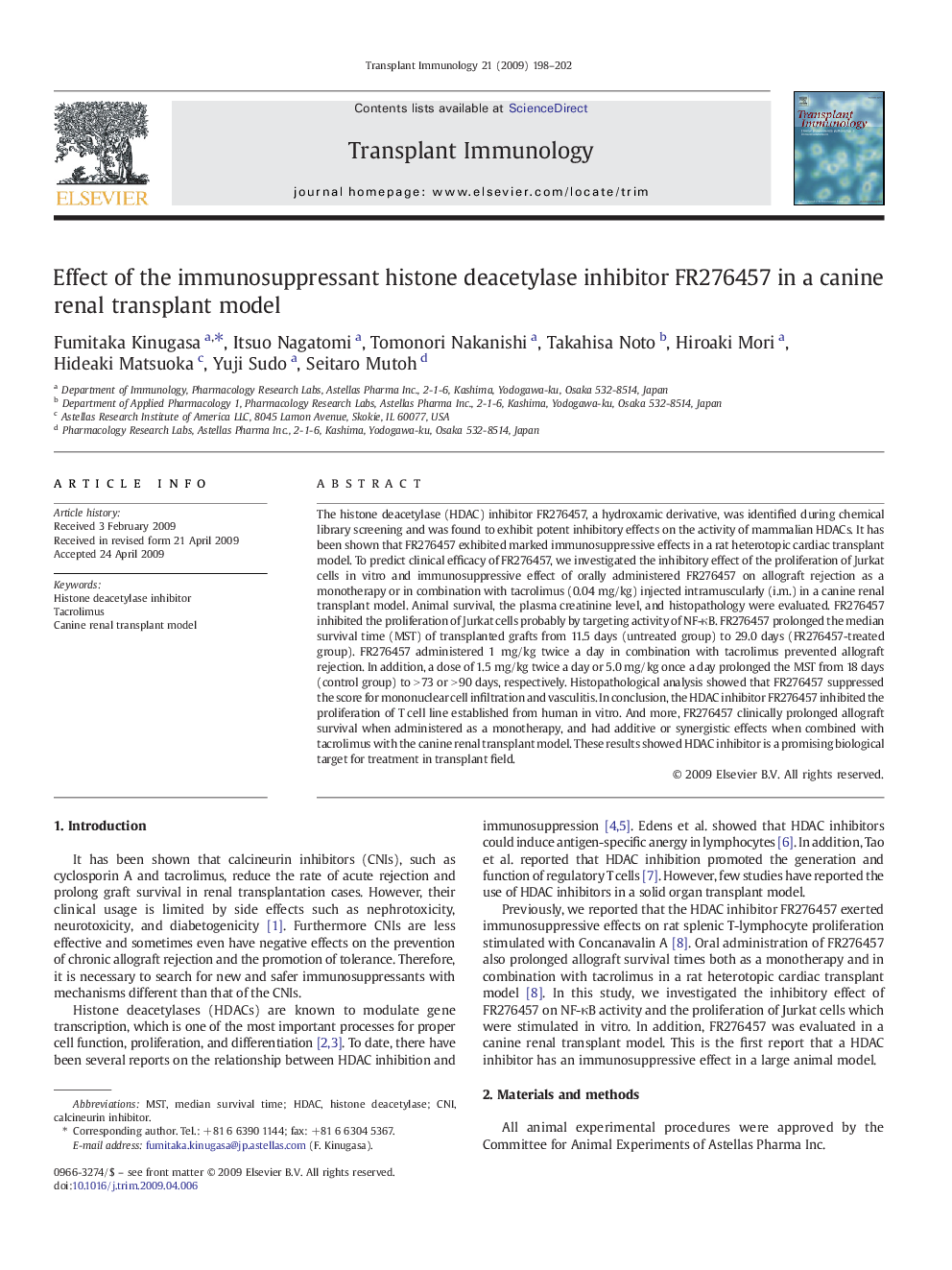| Article ID | Journal | Published Year | Pages | File Type |
|---|---|---|---|---|
| 3392374 | Transplant Immunology | 2009 | 5 Pages |
The histone deacetylase (HDAC) inhibitor FR276457, a hydroxamic derivative, was identified during chemical library screening and was found to exhibit potent inhibitory effects on the activity of mammalian HDACs. It has been shown that FR276457 exhibited marked immunosuppressive effects in a rat heterotopic cardiac transplant model. To predict clinical efficacy of FR276457, we investigated the inhibitory effect of the proliferation of Jurkat cells in vitro and immunosuppressive effect of orally administered FR276457 on allograft rejection as a monotherapy or in combination with tacrolimus (0.04 mg/kg) injected intramuscularly (i.m.) in a canine renal transplant model. Animal survival, the plasma creatinine level, and histopathology were evaluated. FR276457 inhibited the proliferation of Jurkat cells probably by targeting activity of NF-κB. FR276457 prolonged the median survival time (MST) of transplanted grafts from 11.5 days (untreated group) to 29.0 days (FR276457-treated group). FR276457 administered 1 mg/kg twice a day in combination with tacrolimus prevented allograft rejection. In addition, a dose of 1.5 mg/kg twice a day or 5.0 mg/kg once a day prolonged the MST from 18 days (control group) to > 73 or > 90 days, respectively. Histopathological analysis showed that FR276457 suppressed the score for mononuclear cell infiltration and vasculitis. In conclusion, the HDAC inhibitor FR276457 inhibited the proliferation of T cell line established from human in vitro. And more, FR276457 clinically prolonged allograft survival when administered as a monotherapy, and had additive or synergistic effects when combined with tacrolimus with the canine renal transplant model. These results showed HDAC inhibitor is a promising biological target for treatment in transplant field.
